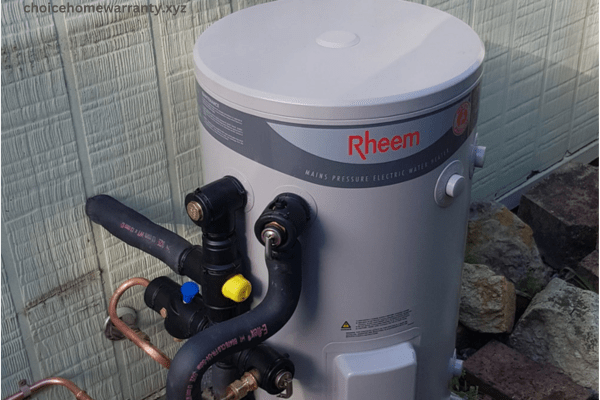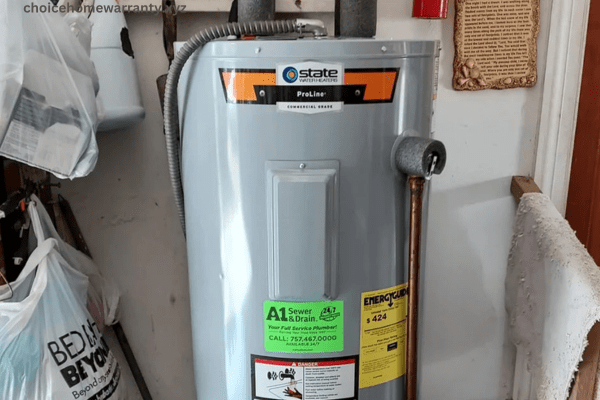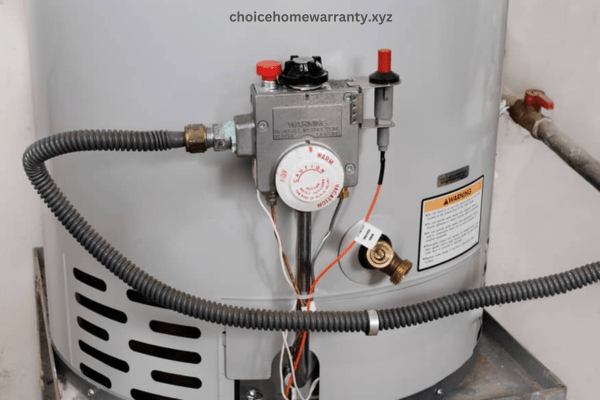One of the most common questions homeowners have about their hot water heater is, how long does it take to heat up? The answer depends on several factors, including the size and type of the water heater, the starting temperature of the water, and the desired temperature setting. In general, a typical gas or electric hot water heater will take anywhere from 30 minutes to an hour to fully heat a tank of water.
It’s important to note that some newer models of hot water heaters are designed with faster heating times in mind, using advanced technology and insulation to minimize heat loss. Additionally, regular maintenance such as flushing the tank and checking for sediment buildup can help improve heating efficiency. Understanding your specific a hot water heater’s capabilities and implementing best practices for efficiency can help you achieve quicker heating times and ensure a steady supply of hot water for your household needs. So next time you’re waiting for your shower to warm up, remember that there are ways to optimize your hot water heater’s performance for faster results.
Understanding Hot Water Heaters
Understanding hot water heaters is crucial for homeowners, as they come in various types such as tankless, storage tank, electric, and gas. To grasp the heating times of these heaters, it’s essential to understand how they function and the factors that impact their efficiency. Variables such as the type of heater, its capacity, and the temperature setting all play a role in determining how long a hot water heater takes to heat up. By familiarizing themselves with these aspects, homeowners can make informed decisions about their hot water systems and ensure optimal performance.
Standard Heating Time
The standard heating time for a hot water heater can vary depending on the size and type of the heater. Generally, it can take anywhere from 30 minutes to an hour for a hot water heater to heat up completely. However, larger-capacity heaters may take longer to reach the desired temperature. Factors such as the initial temperature of the water and the efficiency of the heater also play a role in determining the heating time. It’s important to consider these factors when estimating how long a hot water heater will take to heat up, as well as consulting the manufacturer’s guidelines for specific information regarding heating times.
Factors Influencing Heating Time
The time it takes for a hot water heater to heat up can be influenced by several key factors. Firstly, the type and model of the heater will have a significant impact on heating time, as different heaters have varying efficiencies and heating capabilities. Additionally, the initial temperature of the water being heated will also play a role in determining how long it takes for the water to reach the desired temperature.
The size of the heater is another important factor, as larger heaters may take longer to heat up a larger volume of water. Lastly, regular maintenance of the heater is crucial for optimal performance and efficient heating. Considering these factors collectively will provide a clearer understanding of how long it may take for a hot water heater to heat up.
Tips for Faster Heating
When it comes to faster heating, there are several tips to consider. First, adjusting the thermostat to a higher temperature can help speed up the heating process. Additionally, adopting regular maintenance practices for your hot water heater can ensure it is functioning efficiently and heating water as quickly as possible.
Another strategy is to consider insulation options for your hot water heater, which can help retain heat and reduce the time it takes for the water to heat up. The exact time it takes for a hot water heater to heat up can vary depending on factors such as the size of the tank and the initial temperature of the water, but generally, it can take anywhere from 30 minutes to a few hours.
Common Misconceptions
There are several common misconceptions about hot water heaters and how long they take to heat up. One of the most prevalent misconceptions is that turning up the thermostat will make the water heat up faster. In reality, the time it takes for a hot water heater to heat up is determined by its capacity and power source, not the thermostat setting.
Another misconception is that larger hot water heaters will always heat up water more quickly than smaller ones. While larger heaters may have a higher capacity, their heating time can still be affected by factors like insulation and energy sources. Understanding these misconceptions can help homeowners make informed decisions about their hot water systems and avoid unnecessary frustration.

Importance of Proper Installation
Proper installation of a hot water heater is crucial for efficient and safe operation. A well-installed unit ensures that the heating elements are positioned correctly, the connections are secure, and that all safety features are functioning properly. Additionally, proper installation can help prevent leaks, reduce energy consumption, and extend the lifespan of the water heater.
When hot water heater is not installed correctly, it can take longer for the water to heat up. This is because inefficiencies in the installation process can lead to heat loss and poor circulation within the system. As a result, homeowners may experience delays in getting hot water when they need it most. Therefore, taking the time to ensure proper installation of hot water heater is essential for ensuring optimal performance and quick heating times.
Comparing Electric and Gas Heaters
When comparing electric and gas heaters, it’s important to consider the time it takes for hot water to heat up. Gas heaters tend to heat water more quickly than electric heaters due to their high heating capacity and fast recovery rate. This means that with a gas heater, you can enjoy hot water almost instantly, while electric heaters may take longer to reach the desired temperature. Additionally, gas heaters are often more cost-effective in terms of energy usage, making them a popular choice for those looking for quick and efficient hot water heating.
Real-Life Scenarios
Real-life scenarios provide valuable insights into various situations, including the time it takes for a hot water heater to heat up. By examining examples of heating times in different settings, such as residential homes, commercial buildings, or industrial facilities, we can better understand the factors that affect the heating process.
Additionally, user testimonials offer firsthand accounts of experiences with hot water heaters, shedding light on the practical implications of heating times in everyday life. These real-life perspectives help us appreciate the significance of efficient and timely hot water heating systems in diverse environments.
Eco-Friendly Heating Options
There are several eco-friendly heating options available for those looking to reduce their environmental impact. From solar heaters to geothermal systems, homeowners have a variety of choices when it comes to heating their homes and water in an environmentally friendly way.
Additionally, the time it takes for hot water heater to heat up can vary depending on factors such as the size of the tank and the initial temperature of the water. By exploring eco-friendly heating options and understanding how long a hot water heater takes to heat up, individuals can make informed decisions that benefit both their household and the planet.
Troubleshooting Slow Heating
If you are experiencing slow heating with your hot water heater, there are a few troubleshooting steps you can take to address the issue. First, check the thermostat settings on the water heater to ensure they are set at an appropriate temperature. Additionally, consider flushing the tank to remove any sediment buildup that could be hindering the heating process.
It’s also important to inspect the heating elements for any damage or malfunction. If these steps don’t resolve the slow heating issue, it may be necessary to consult a professional plumber to diagnose and repair any underlying problems with the hot water heater. By addressing these issues, you can improve the time it takes for your hot water heater to heat up and ensure consistent access to hot water in your home.

Future Trends in Hot Water Heating
In the future, hot water heating is expected to become more efficient and sustainable, with a focus on reducing energy consumption and carbon emissions. This will likely involve the use of advanced heat pump technology, solar thermal systems, and smart controls to optimize the heating process.
Additionally, there is a growing trend towards instant hot water heaters that can quickly heat water on demand, eliminating the need for large storage tanks and reducing standby energy losses. These advancements in hot water heating technology are paving the way for a more environmentally friendly and cost-effective approach to providing hot water for residential and commercial purposes.
Conclusion
The time it takes for a hot water heater to heat can vary based on several factors including the size of the tank, the initial temperature of the water, and the efficiency of the heater. Typically, a standard electric water heater can take anywhere from 1 to 2 hours to fully heat a tank of water, while a gas-powered heater may take slightly less time.
However, it is important to note that newer models with advanced technology and higher energy efficiency may heat water more quickly. To ensure optimal performance and quick heating times, regular maintenance and upkeep of your hot water heater is essential. Consider consulting a professional if you have concerns about your water heating system or are looking for ways to increase its efficiency.
FAQs About a Hot Water Heater
What is the average heating time for a hot water heater?
The average heating time varies but typically falls within a specified industry standard. Factors such as heater type and initial water temperature can influence this.
Can the heating time be adjusted on all water heaters?
Most water heaters allow some level of adjustment. However, specific features may vary between different models and types.
Are tankless water heaters faster than traditional ones?
Tankless water heaters are known for their quick heating times compared to traditional storage tank heaters.
How often should I schedule maintenance for my hot water heater?
Regular maintenance is crucial for optimal performance. Consider scheduling maintenance at least once a year.
What are the signs that my water heater may need professional attention?
If you notice a significant decrease in heating efficiency, unusual noises, or leaks, it’s advisable to seek professional help promptly.
